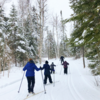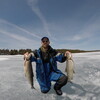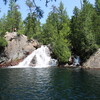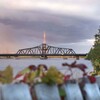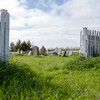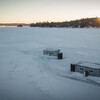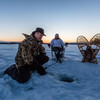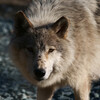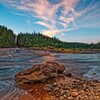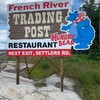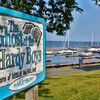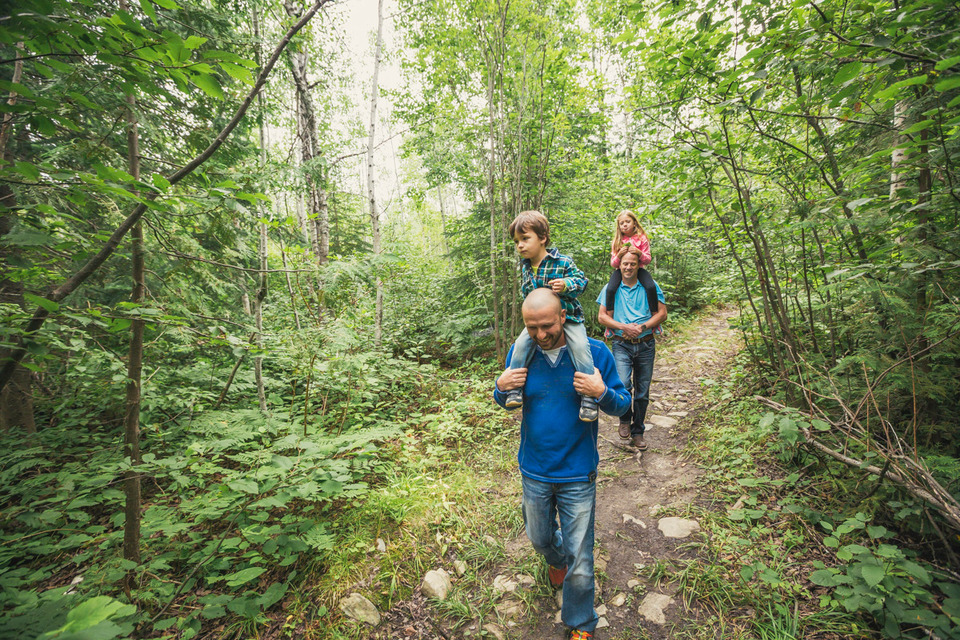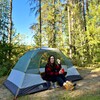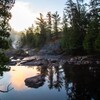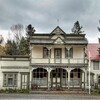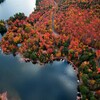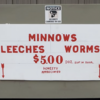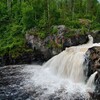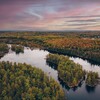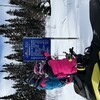
Fall for Sturgeon Falls: A Weekender's Guide to This Under the Radar Gem
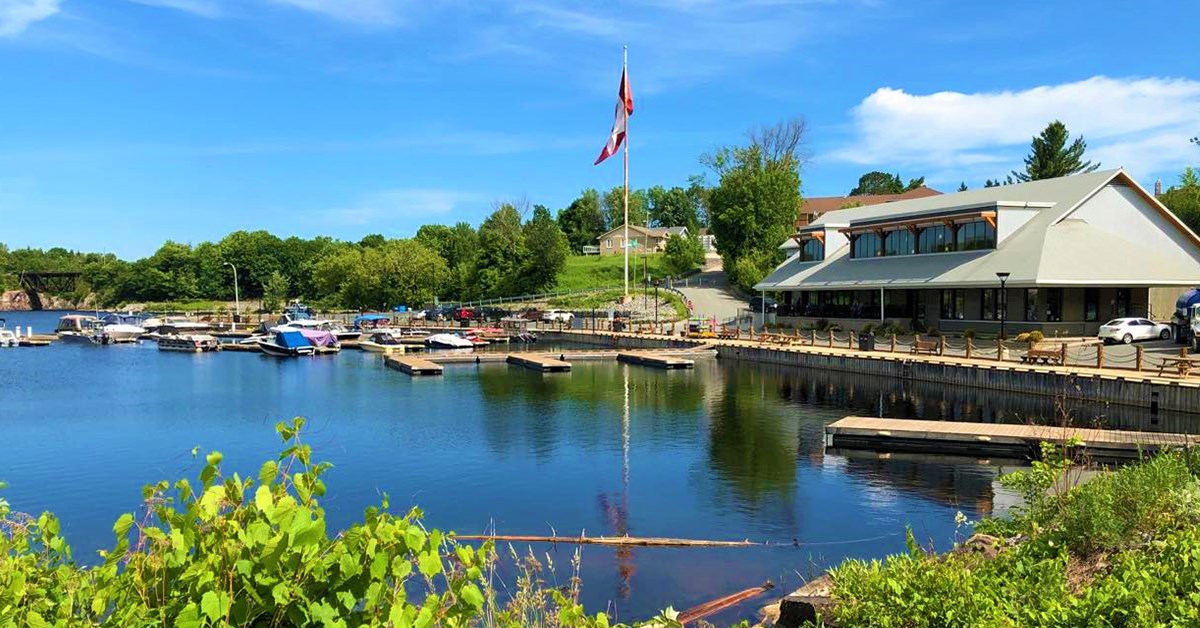
In many ways, the township of Sturgeon Falls in Northeastern Ontario, Canada, is overshadowed by its much larger neighbour, North Bay. While North Bay has been attracting vacationers for a century, originally drawn by the Dionne Quintuplets, later by its enviable position on beautiful Lake Nipissing, Sturgeon Falls has largely flown under the tourist radar.
But the town is awakening from its slumber and people are beginning to appreciate its appeal.
Discovering the Charm of Sturgeon Falls: A Hidden Gem in Northeastern Ontario
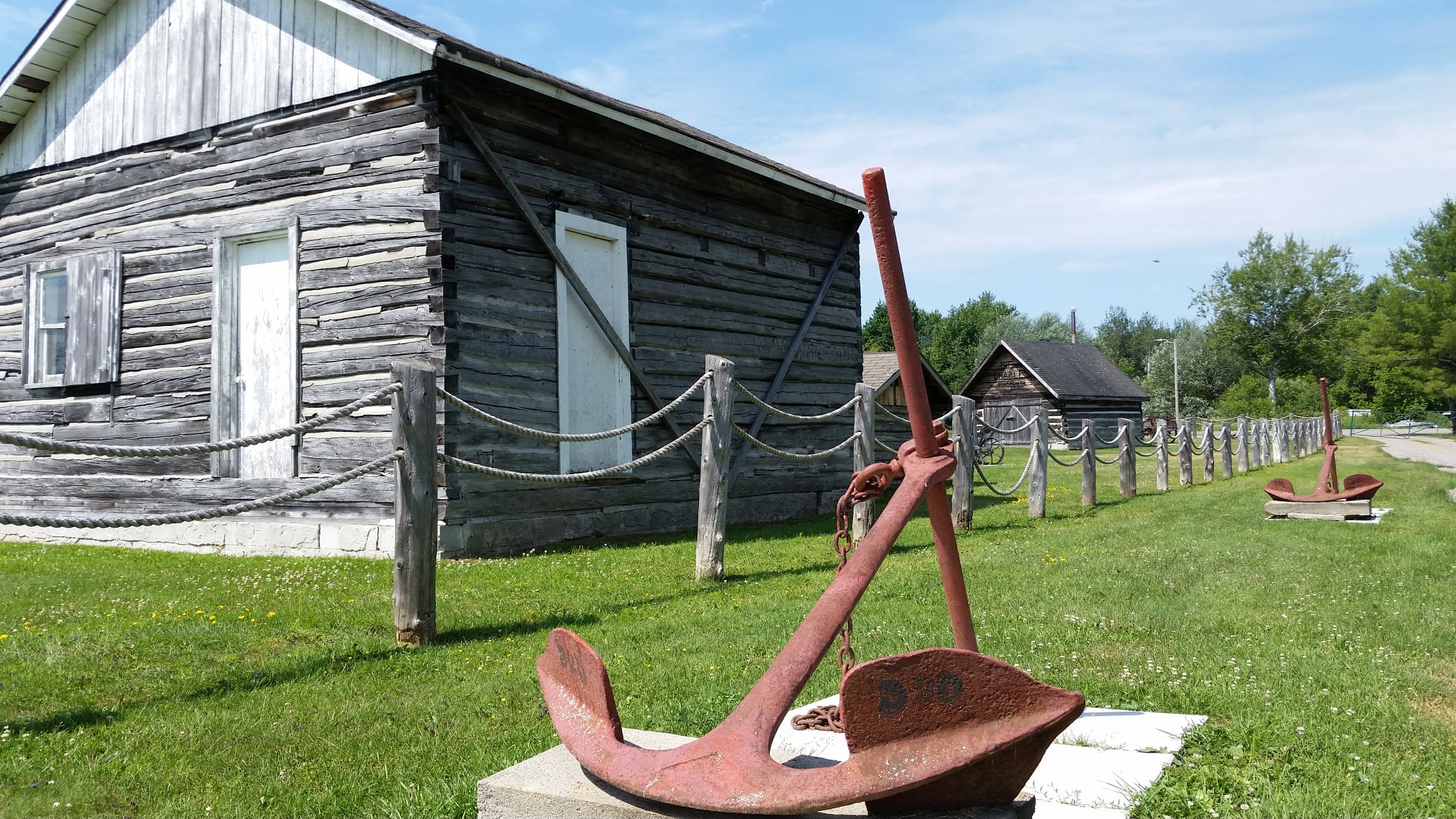
While Sturgeon Falls may be newly discovered by some travellers, it is located within the traditional territory of the Nbisiing Anishinaabeg, who have lived in and stewarded this area since time immemorial. Today, the community of Nipissing First Nation continues to maintain strong cultural, social, and historical connections to the land.
European fur traders began frequenting Lake Nipissing in the 17th century, exchanging goods for the Nbisiing’s beaver pelts. A century later, trading posts were established to facilitate this profitable business. In 1878 the first non-Indigenous settler, James R. Holditch, arrived and settled along the bank of the Sturgeon River near the falls (Holditch Street is named for him). Many of the settlers who came in Holditch’s wake hailed from Quebec, giving the growing community a Franco-Canadian character that endures today. The arrival of the Canadian Pacific Railway (CPR) in 1881 allowed for the rapid development of lumbering and pulp and paper industries that would sustain and define Sturgeon Falls for the next century.
As we enter the third decade of the 21st century and with the industries of old having disappeared, Sturgeon Falls is now attracting an ever-increasing number of tourists, who come to admire its picturesque setting and a growing variety of attractions.
Some visitors simply make a brief stop while passing through, but that doesn’t do Sturgeon Falls justice. Far better to make a weekend of it to truly get a sense of what makes the town special.
Sturgeon Falls, Day 1: History, Lookouts, and Local Flavour
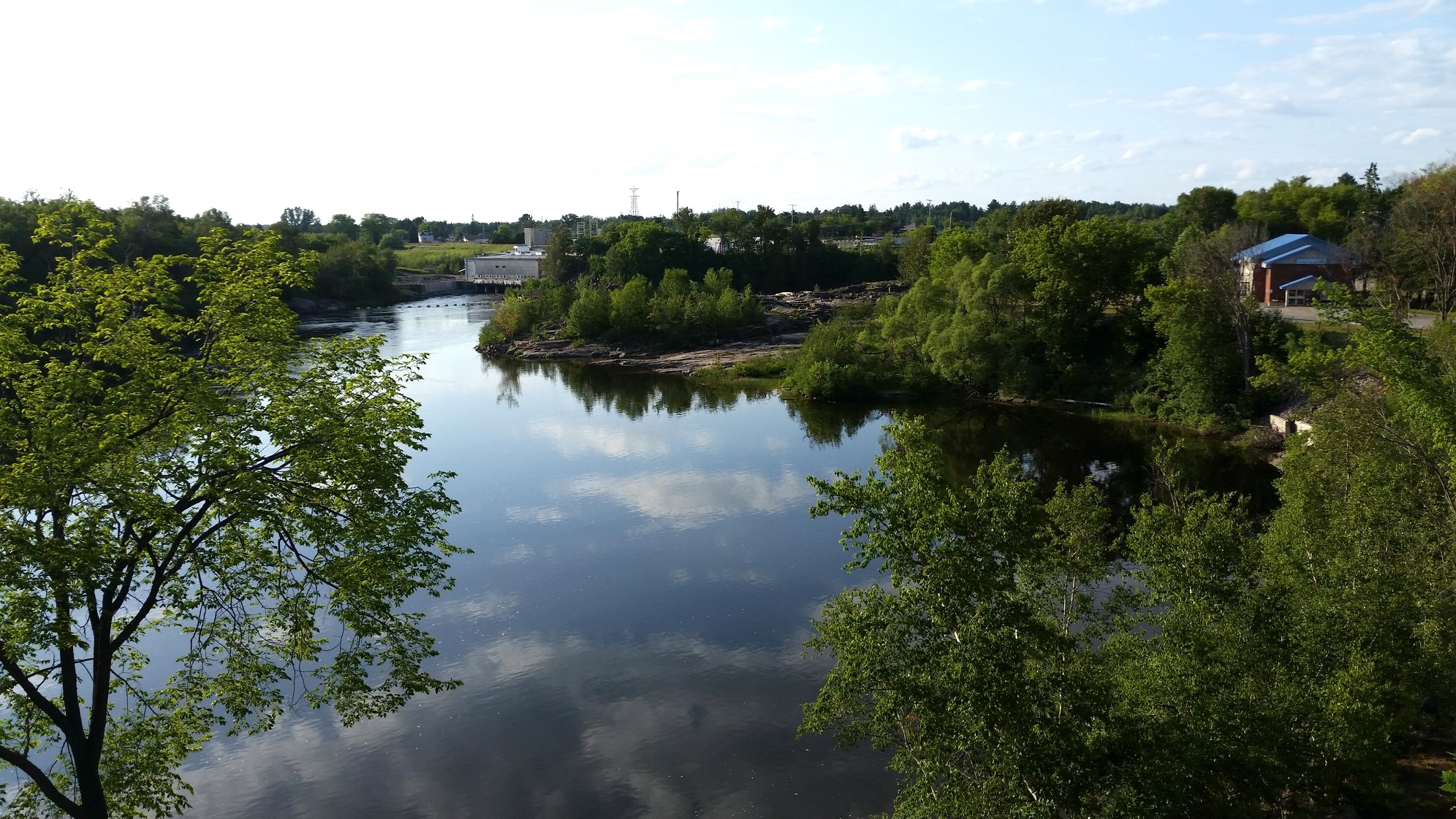
Start at the Champlain Bridge Lookout, located on the south side of Front Street (Highway 17) at the bridge spanning the Sturgeon River. The vantage point offers an impressive view that encompasses the river and the West Nipissing Hydro Generating Plant that tamed its once turbulent waters. From this vantage point, it's easy to see why Sturgeon Falls was settled back in the 1880s. The river is wide and steadily flowing, offering a means to transport timber felled deep in the northern wilderness via spring log drives. The falls provided plenty of power to run lumber and pulp and paper mills.
That’s all discussed in a historical plaque on site that traces, in broad strokes, the founding of Sturgeon Falls. We also learn of the importance of a Hudson’s Bay Company post and the arrival of the Canadian Pacific Railway in the development of the town. The history is great. But make no mistake, it's really the view that holds your attention here.
Dive Into the Fur Trade Era at Sturgeon River House Museum
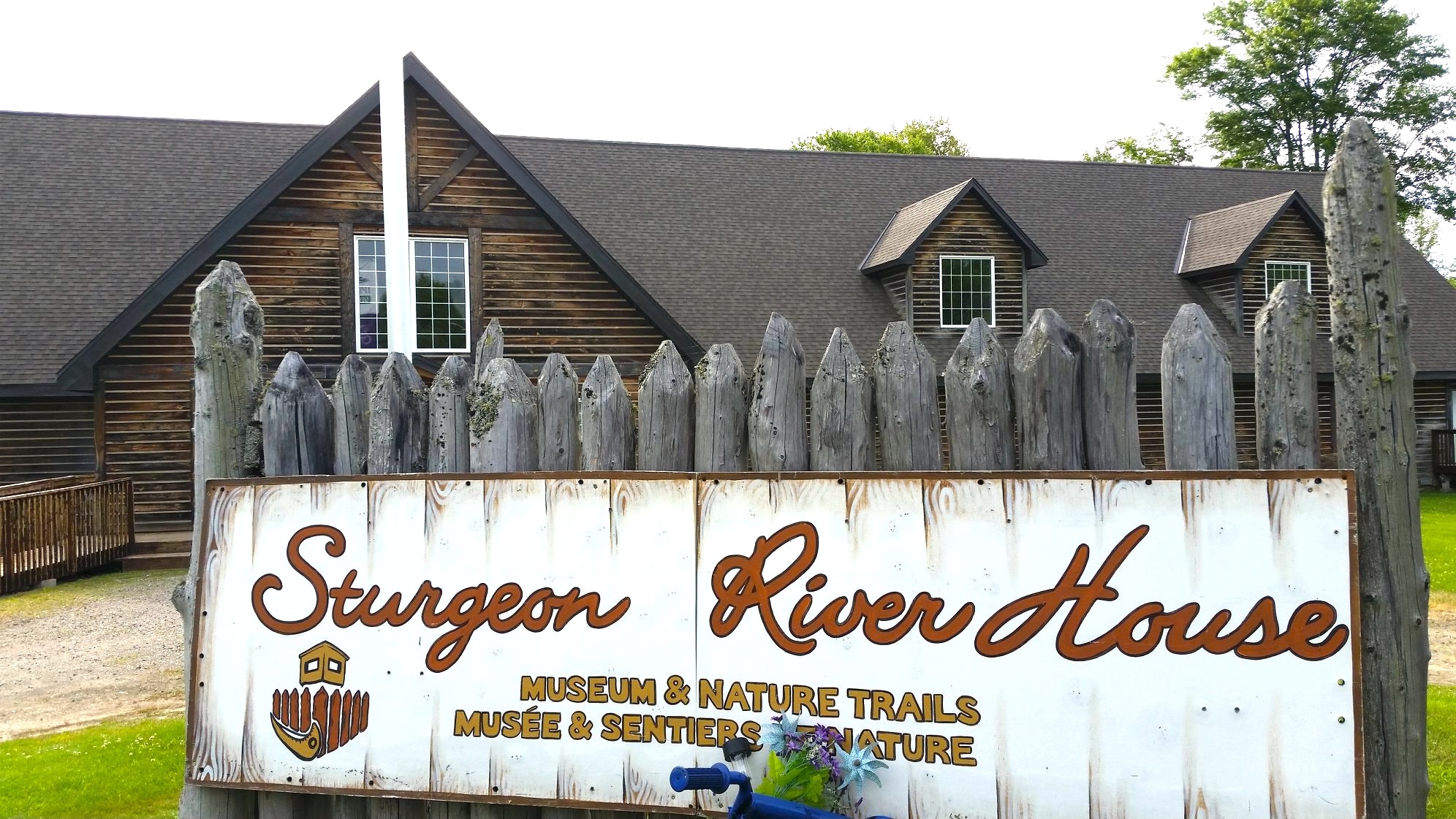
To learn much more about local history, spend a few rewarding hours at the Sturgeon River House museum. French voyageurs had plied Lake Nipissing as early as the mid-17th century in their oversized canoes, trading with local First Nations for furs and heading down the French River to points further west in the North American interior. By 1848, French voyageurs had given way to the Hudson’s Bay Company, which established a trading post a mile up the Sturgeon River. Sturgeon River House, as the new post was named, remained in use for over half a century. In 1967, years after the fort closed and long after it had succumbed to time and the elements, the community decided to rebuild Sturgeon River House as a Canadian Centennial project to promote and preserve the cultural and natural heritage of the English, French and First Nations population of West Nipissing, focusing on the fur trade era and pioneer life.
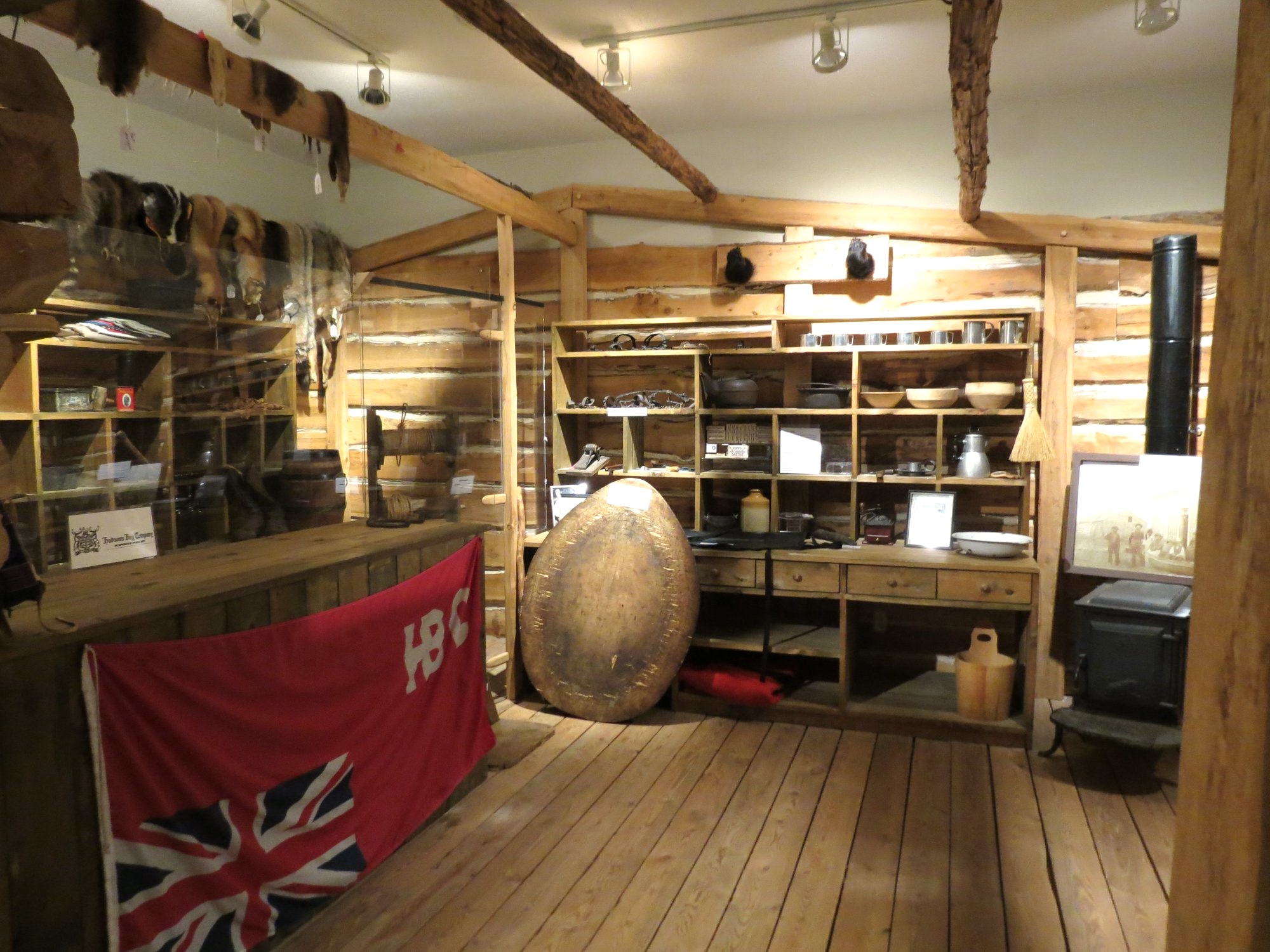
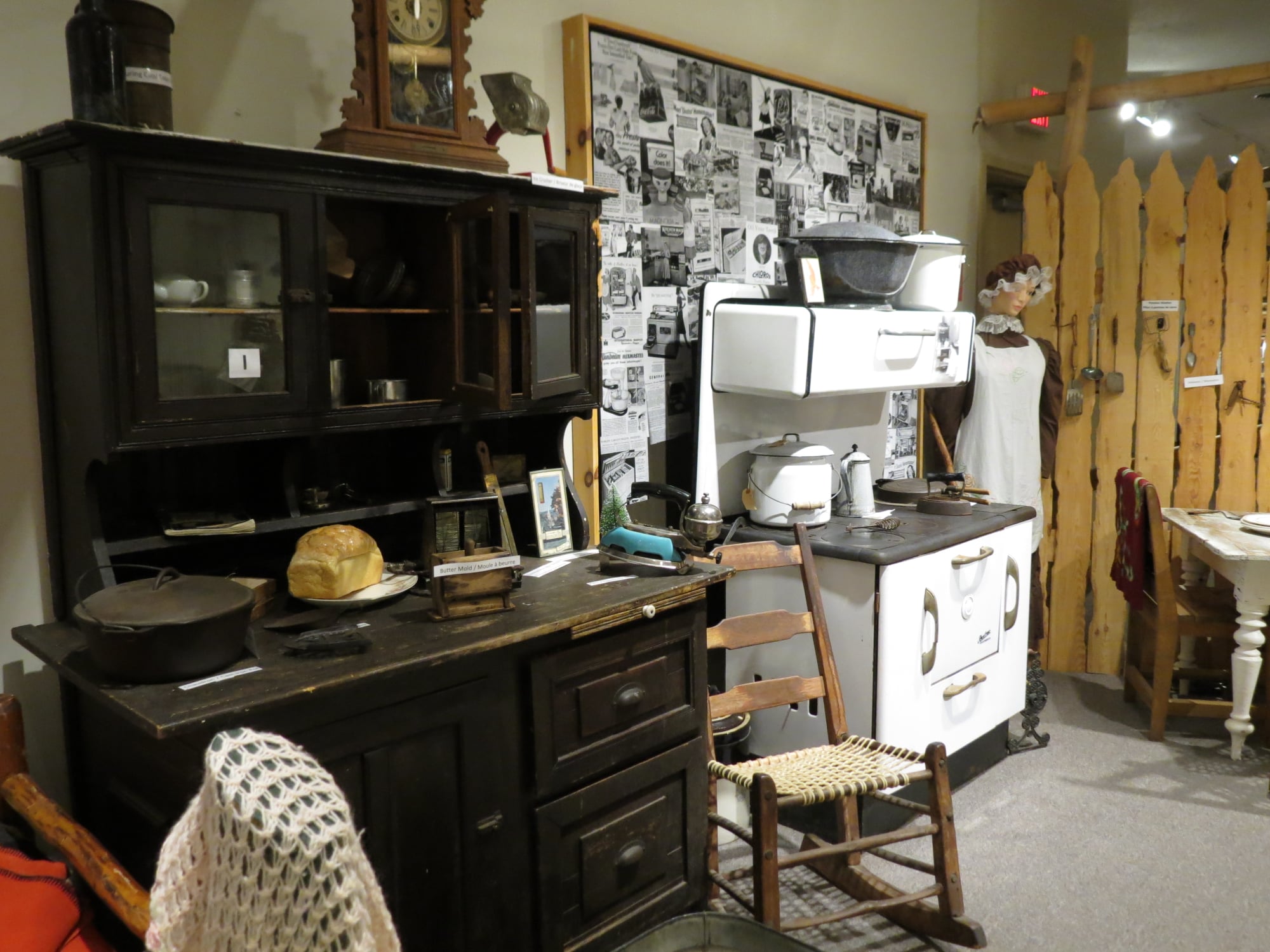
Visitors step inside a log palisade and are transported back to the 19th century. Most naturally gravitate towards the recreated log Hudson’s Bay Company post, which serves as the heart of the museum. The oldest artifact is a spearhead dating to over 4,000 years ago. The ground contains a collection of historic buildings, including La Forge Charles, a blacksmith shop filled with artifacts donated by the family of local smith J.P. Charles, an 1898 settler’s home, and an icehouse which in years passed would have stored blocks of ice cut from the winter and insulated by mounds of sawdust. A stroll through the museum is measured not in steps, but in years.
Classic Bites at Riv Chip Stand and Wetland Walks at Theodore Fouriezos Park
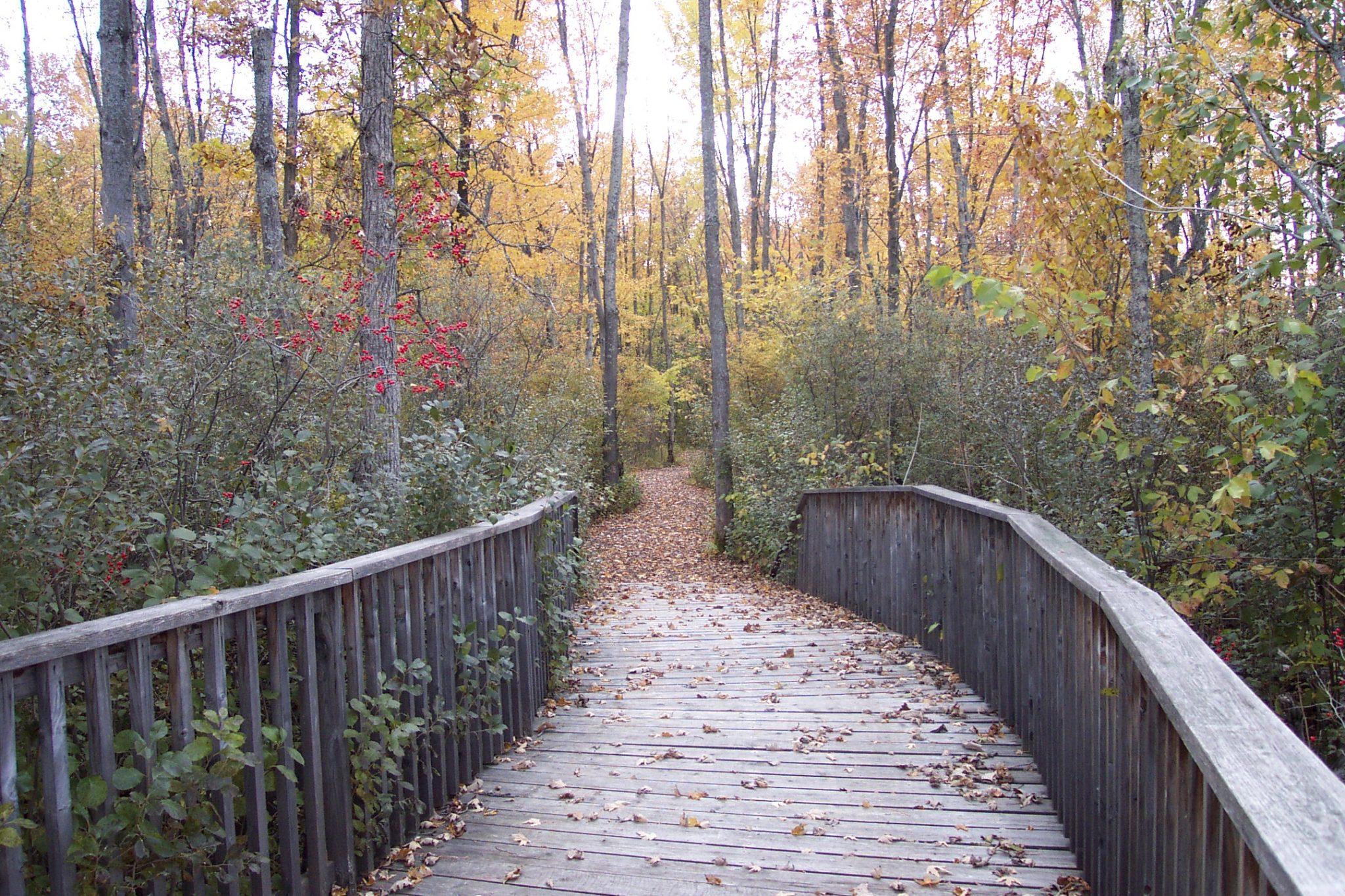
After leaving the museum, stop for a bite at Riv Chip Stand, an institution in Sturgeon Falls since 1973. The fries—using only locally grown potatoes—are their calling card, naturally, but the menu also includes a selection of signature poutine, burgers made with 100% Ontario-grown free-range beef, and beer-battered haddock.
Burn off some of your newly acquired calories with an active afternoon of hiking through the Theodore Fouriezos Wetland Park, located opposite Sturgeon River House Museum. The 3 km trail and boardwalk pass through four wetland types—bog, fen, swamp, and marsh—that support a wide range of flora and fauna. There are several viewing platforms, including one with a scenic vista out onto Lake Nipissing’s Cache Bay.
Sturgeon Falls is well served by fast food chains, so you have no shortage of options, but locals swear by McMacken’s Pub, a family-style restaurant with a contemporary design, warm atmosphere, and a fine menu. The Maple-Butter Glazed Fried Chicken Salad, with candied almonds, apples, sun-dried cranberries and aged cheddar, is excellent.
Where To Stay in Sturgeon Falls: Comfort and Convenience
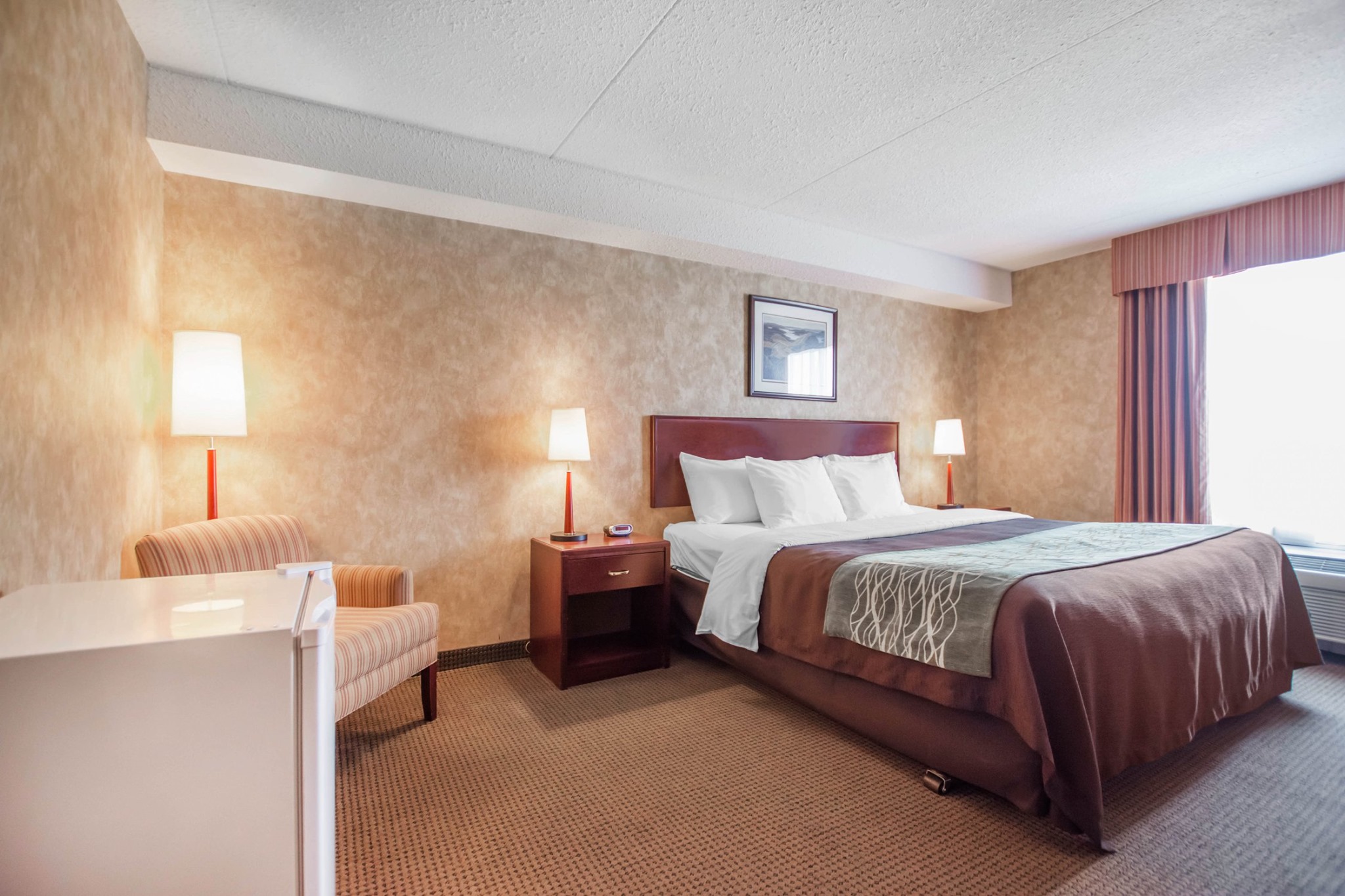
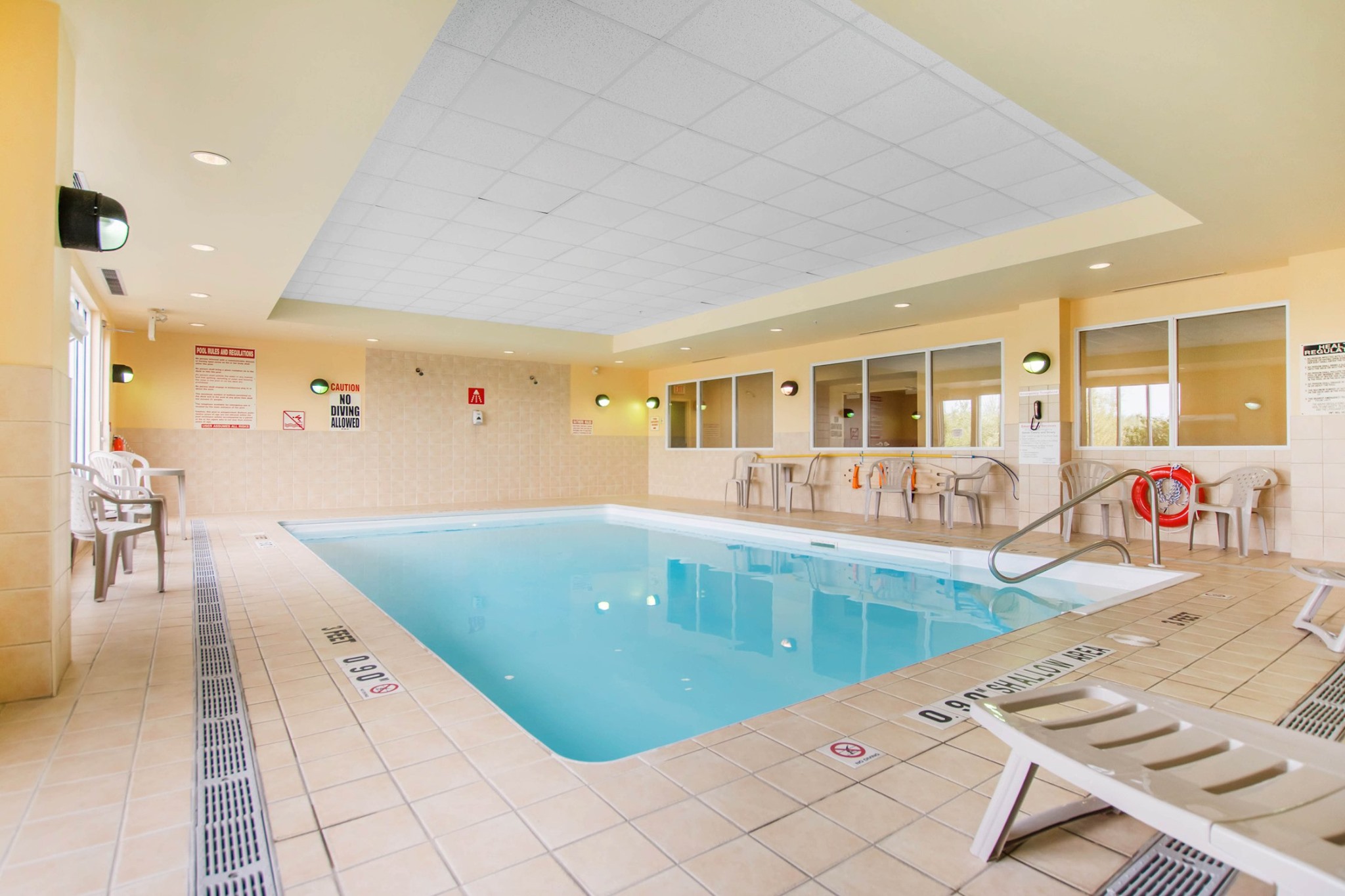
Retire for the night to the Comfort Inn Sturgeon Falls, a multiple Platinum Guest Satisfaction Award winner, marking it as among the top 3 percent of Choice Hotel properties in Canada. It’s a wonderful economy hotel, with clean and modern rooms, hospitable staff, an indoor pool, and a nice continental breakfast. Perhaps best of all, the bill won’t break your wallet.
Sturgeon Falls, Day 2: Local Farms, Francophone Roots, and Butter Tarts To Go
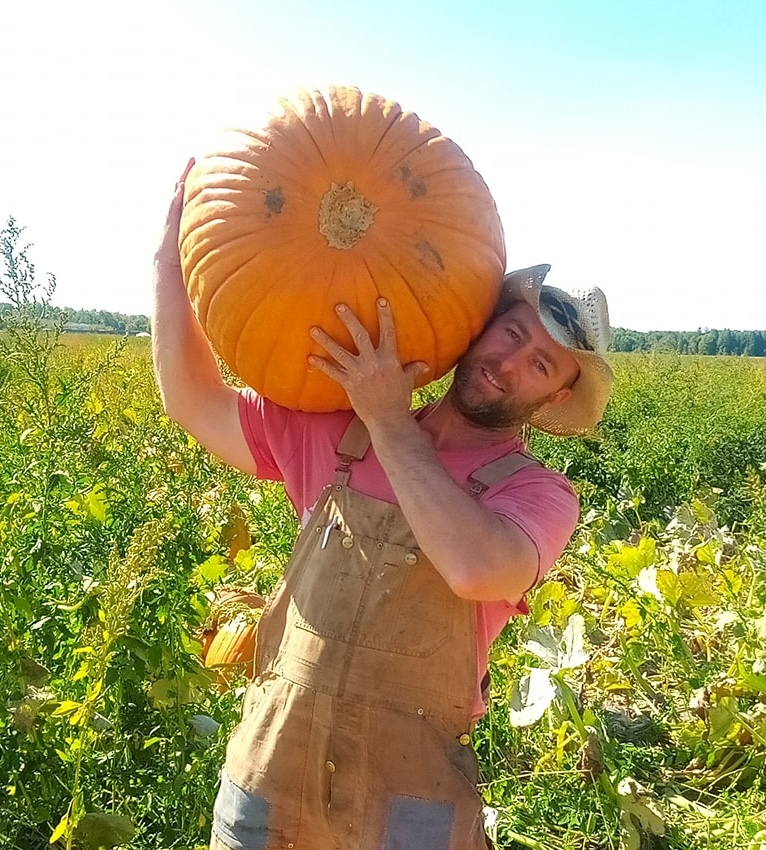
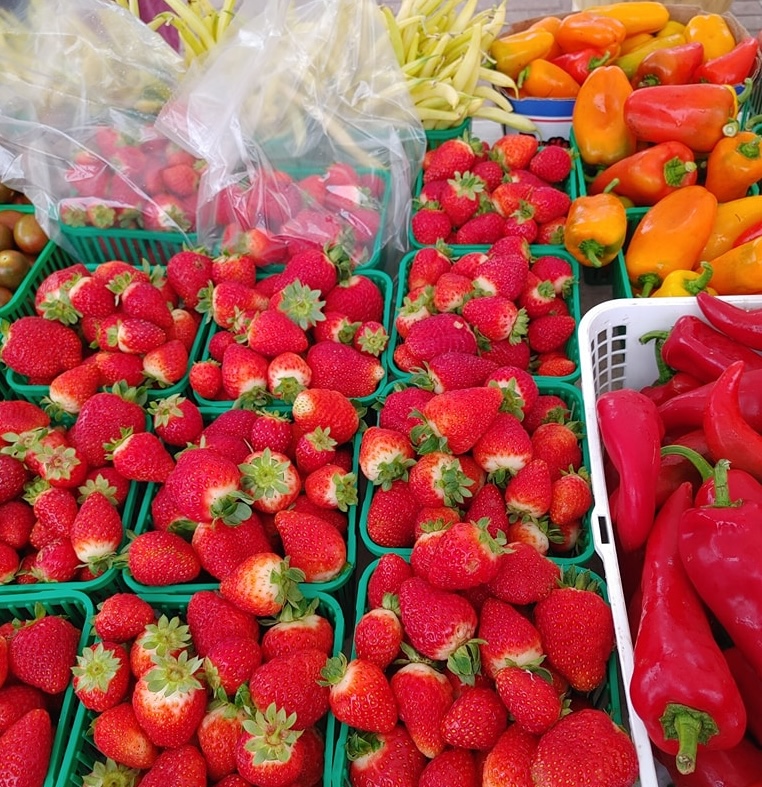
After breakfast, visit Leisure Farms, which has been in the Deschatelets family for three generations. Previously a beef and dairy farm, it has since focused on berries and vegetables. Leisure Farms is now the largest pick-your-own strawberry farm in Ontario. Fields filled with plump red berries are not the only attraction. The farmer's market sells in-season vegetables, award-winning homemade jams and jellies, and delightful freshly baked breads and pies. Every August, Leisure Farms hosts Feast on the Farm, a culinary festival where chefs create dishes using only food items raised, grown and produced within 100 kilometres. Or, if you visit at the tail end of the season when the forest is transformed by a painter’s palette, you’ll find a range of seasonal activities such as a pumpkin cannon, corn maze, bonfire in the bush, and countless pumpkins to purchase.
Honouring French-Canadian Legacy in Nearby Verner
In honour of the region’s strong Francophone character, take the short drive west to Verner to view a historic plaque dedicated to Reverend Charles Alfred Marie Paradis. A Catholic missionary to the region in the late 19th century, he strongly advocated French-Canadian settlement of what is now West Nipissing. A man of diverse interests, he farmed and prospected for gold, painted, and worked on an Ojibwa dictionary. The plaque is located on the grounds of St. John the Baptist Roman Catholic Church, (38 Main Street, Verner), a beautiful 120-year-old church. Stunning paintings adorn the ceilings inside.
Sweet Endings and Scenic Coffee Spots
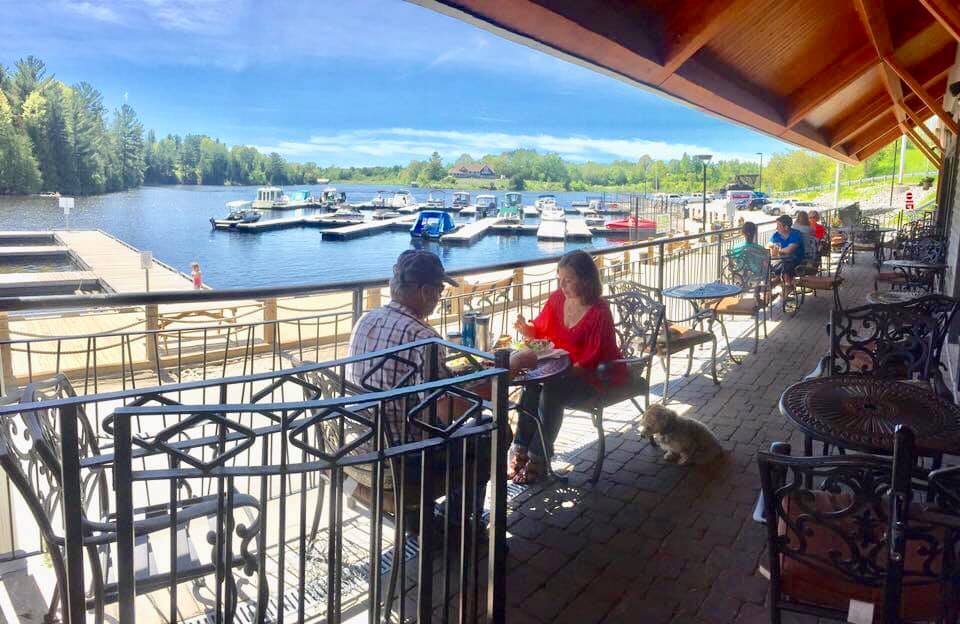
Make a few final stops in Sturgeon Falls before heading home. Loosen the belt, forget the diet, and indulge—now or on the road—in some delectable pasties from Chez Jean-Marc Bakery. Owner Daniel Lelievre makes everything from scratch, from pies and donuts to bread and buns. The standout is the butter tarts, plain, raisin, or pecan. They are so widely acclaimed that in the summer, he sells as many as 60 dozen!
Finally, head down to Minnehaha Bay for a coffee and light lunch at Twiggs Coffee Roasters. The food is great, the coffee rich and delicious, and the views peaceful. Savour the last fleeting moments of your stay in Sturgeon Falls, watching boats glide up to the docks, gulls swirling amidst blue skies above, and sunlight dancing upon the water like little diamonds. It’s a magical way to end your visit.
A Town on the Rise: From Industrial Past to Tourist Destination
The loss of the pulp and paper and lumber industries that were the economic engine of the town shook Sturgeon Falls to its core. But the town is awakening from its slumber and putting out the welcome mat for tourists. No longer just a place to drive through, it's now becoming a place to drive to, if only for a weekend.
Recommended Articles
The Seven's Best Hikes, Biking Trails and Lakes

7 Best Spots to Check Out in The Seven

Budget Bliss: Explore Northeastern Ontario Without Breaking the Bank

Bring Your Fam!

Time to Unwind: 6 Spa Havens to Discover In The Seven
5 Amazing Places to SUP in Northeastern Ontario

5 Amazing Bike Rides to Discover

Northern Lights in Northeastern Ontario

Northeastern Ontario's Best Pride Festivals

Fish for one of the World's Rarest Species of Trout

An Insider's Guide to Manitoulin Island

6 Small-Town Gems to Explore in Northeastern Ontario

11 Best Things to Do in Kapuskasing, Ontario

